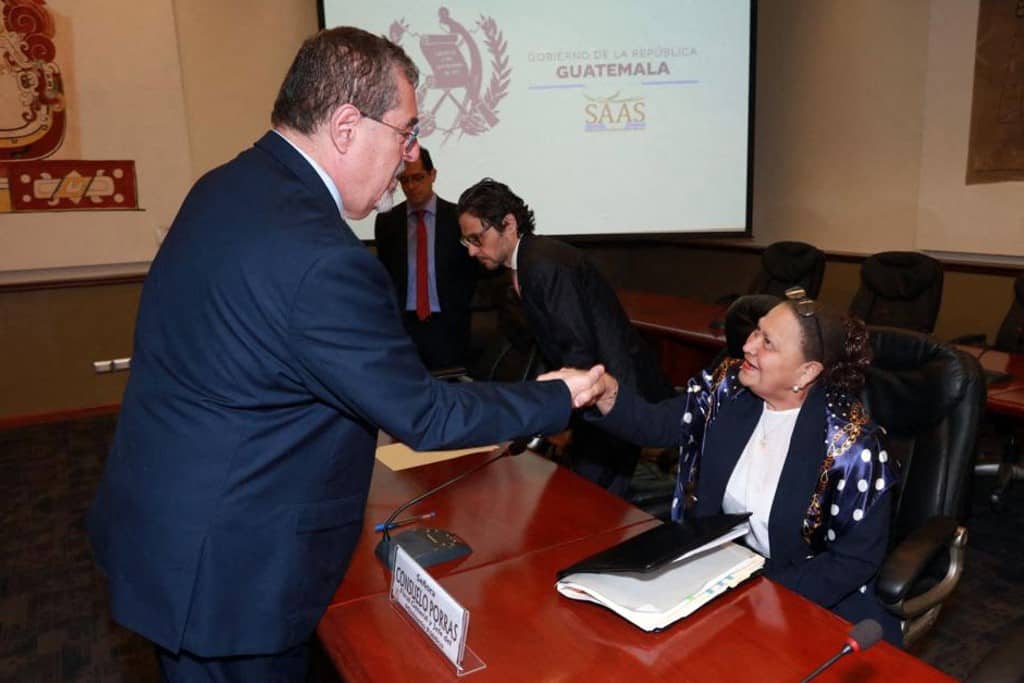Guatemala’s Attorney General, Consuelo Porras, attended a meeting this Monday with new President Bernardo Arévalo and his cabinet, but she left early alleging legal impediments, without addressing the president’s request for her resignation.
Porras, who led a legal crusade that jeopardized Arévalo’s inauguration, attended the president’s second summons after he publicly asked for her resignation, which she rejects. Her term expires in 2026.
“I found it necessary to withdraw since the meeting was intended to take place within the framework of the Council of Ministers, which by constitutional and legal mandate prohibits me from participating,” Porras said in a video released on social media after leaving the Presidential House.
She claimed that she attended Arévalo’s summons “in compliance with the Organic Law of the Public Ministry” (Prosecutor’s Office), but withdrew because that meeting interfered with the “autonomy” of the institution she heads.
Hours later, in a letter published on the X social network (formerly Twitter), the prosecutor invited the president to a “working meeting” next Wednesday at the Prosecutor’s Office to “coordinate inter-agency efforts in favor of crime victims”.
Arévalo, whose rise to power two weeks ago has raised fears among the country’s traditional elite, summoned Porras to the cabinet session after she refused to meet with him last Wednesday.
That same day, the 70-year-old prosecutor, considered “corrupt” by the United States, said she would not leave her post. Arévalo lacks the power to remove her.
After this Monday’s cabinet meeting, Arévalo said at a press conference that Porras must decide whether or not to step aside.
“The public resignation request is public and well-known. It is public knowledge, she knows it and I think it is on the table so that it is she who defines with her actions whether she is accepting it or not,” the president declared.
The president indicated that the purpose of Porras’ “failed visit” was to address joint activities and said he will evaluate “the legal actions that proceed” in the face of Porras’ “refusal” to participate in the cabinet session.
The international community accuses Porras of “undermining” democracy in Guatemala by jeopardizing the presidential transition with questionable investigations, including one that considered the 2023 elections won by Arévalo “null and void”.
These maneuvers were described by Arévalo as an attempted “coup d’état” to prevent him from assuming power with his promise to fight corruption, which set off alarm bells among the country’s political and economic elite.






